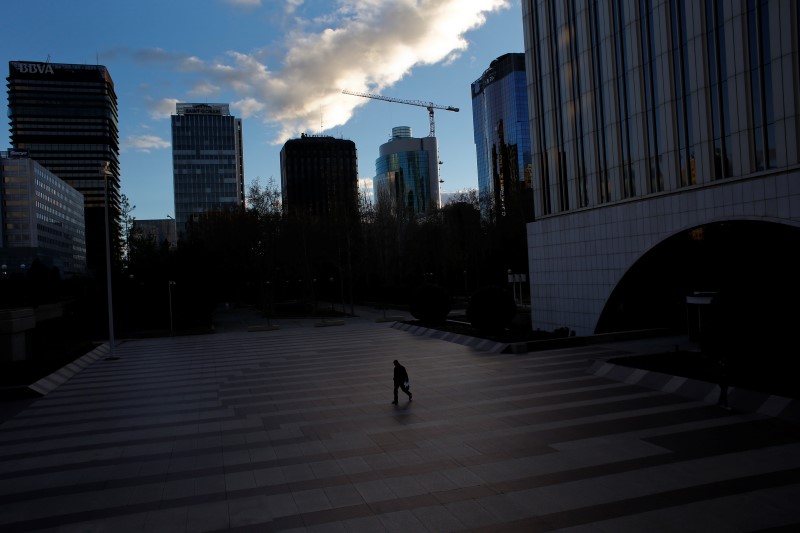By Sarah White and Paul Day
MADRID (Reuters) - Spain's economy grew at a steady pace in the fourth quarter, adding to hopes the country's recovery has enough momentum to withstand a period of political instability after an inconclusive election result.
The economy expanded by 0.8 percent in between October and December from the previous three months, matching growth in the third quarter, the National Statistics Institute said on Friday in a preliminary estimate.
For 2015 as a whole, growth reached 3.2 percent year on year, its fastest pace since before a severe downturn began eight years ago, and a touch lower than the 3.3 percent forecast by the People's Party (PP) government, which lost its majority in parliament in the December ballot.
The election left Spain's political landscape split between longstanding forces like the centre-right PP and its Socialist opponents, and newcomers such as anti-austerity Podemos, which has called for an end to spending cuts.
Wrangling between parties has yet to result in any coalition to govern, more than a month after the poll.
Spain exited recession in mid-2013, and the economy, fuelled by a consumer spending recovery, has since rebounded to grow at one of the fastest rates in the euro zone.
But a persistently high unemployment rate - expected to hover at around 20 percent this year even in the best of scenarios - is just one sign that Spain can ill afford a major slowdown, however.
A number of strong tailwinds, including a stimulus programme from the European Central Bank, are likely to offset for now any adverse effect from the political backdrop, economists say.

Weak inflation, triggered by falling oil prices, is also boosting families' purchasing power. Consumer prices slipped back into negative territory in Spain in January, INE data also showed on Friday.
Businesses and banks have warned, however, that foreign investors could hold off on decisions to put more money into Spain if there is a prolonged political vacuum or no stable government.
For graphic, click: http://link.reuters.com/buq24w